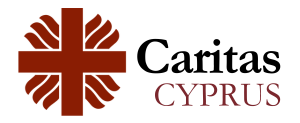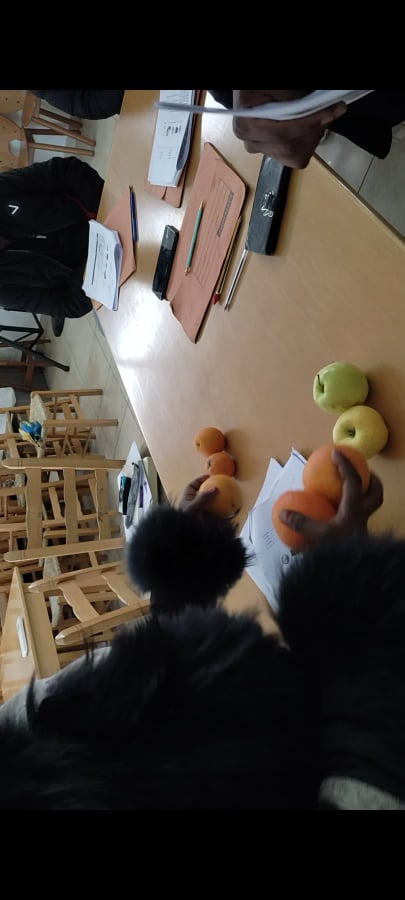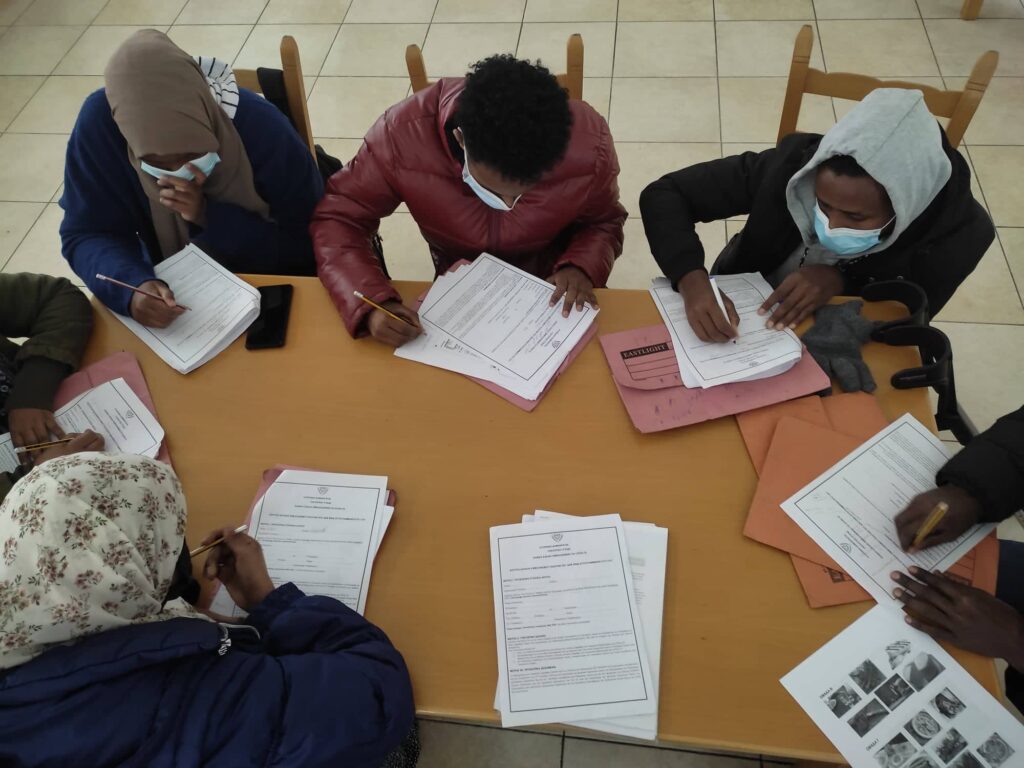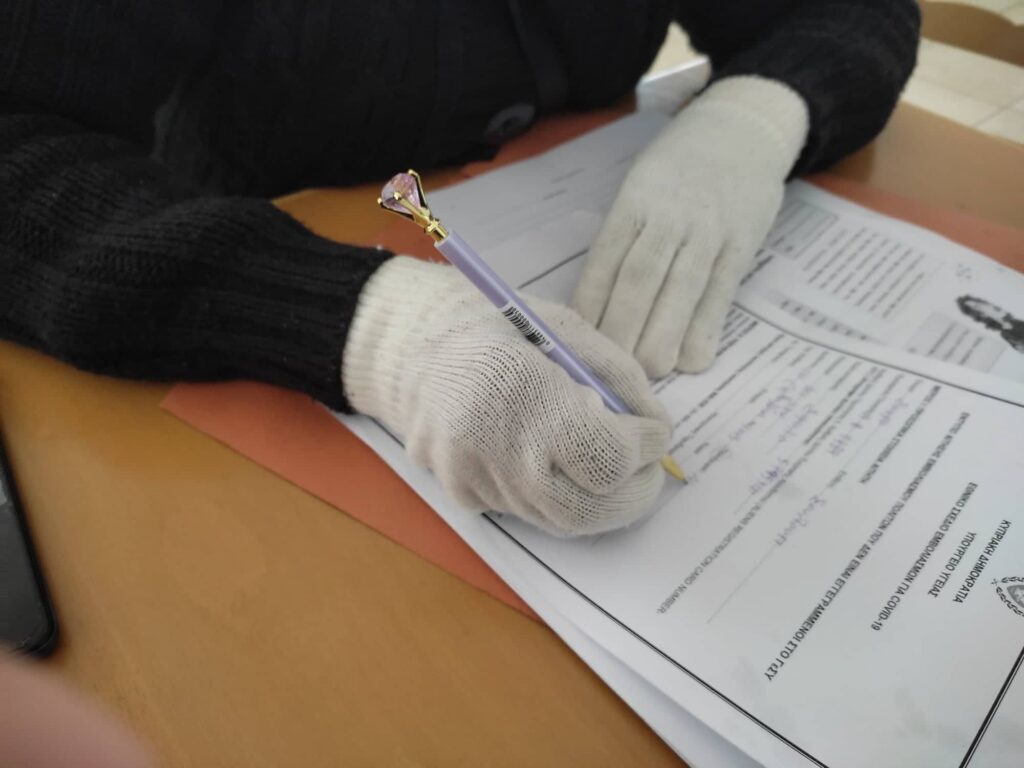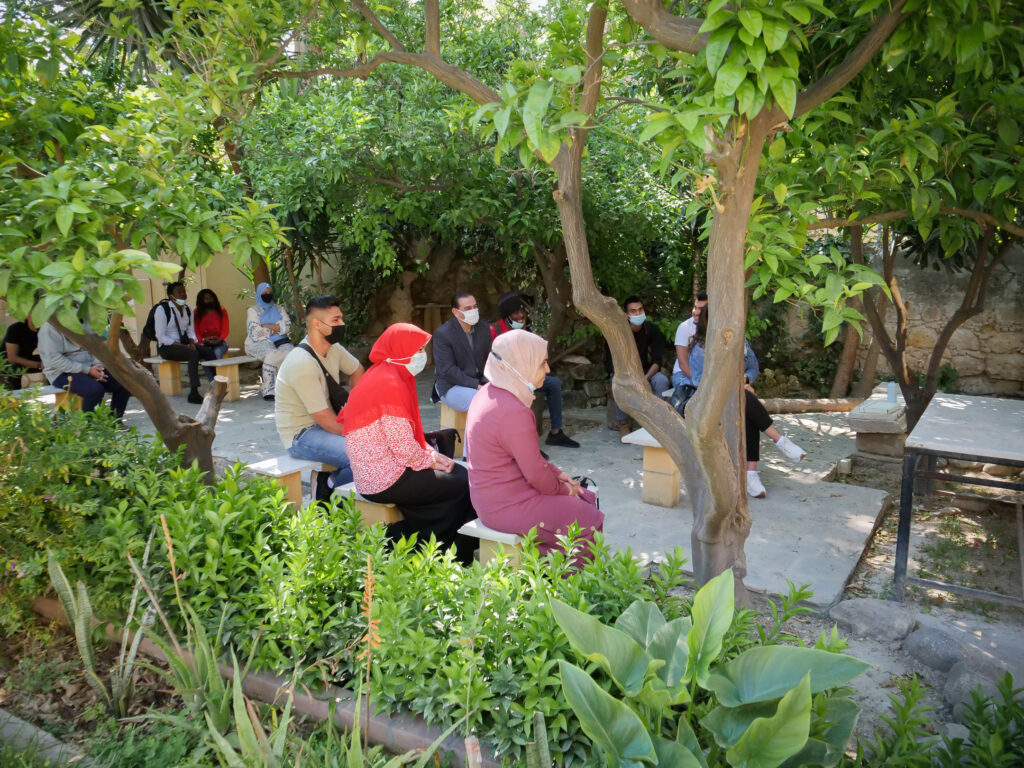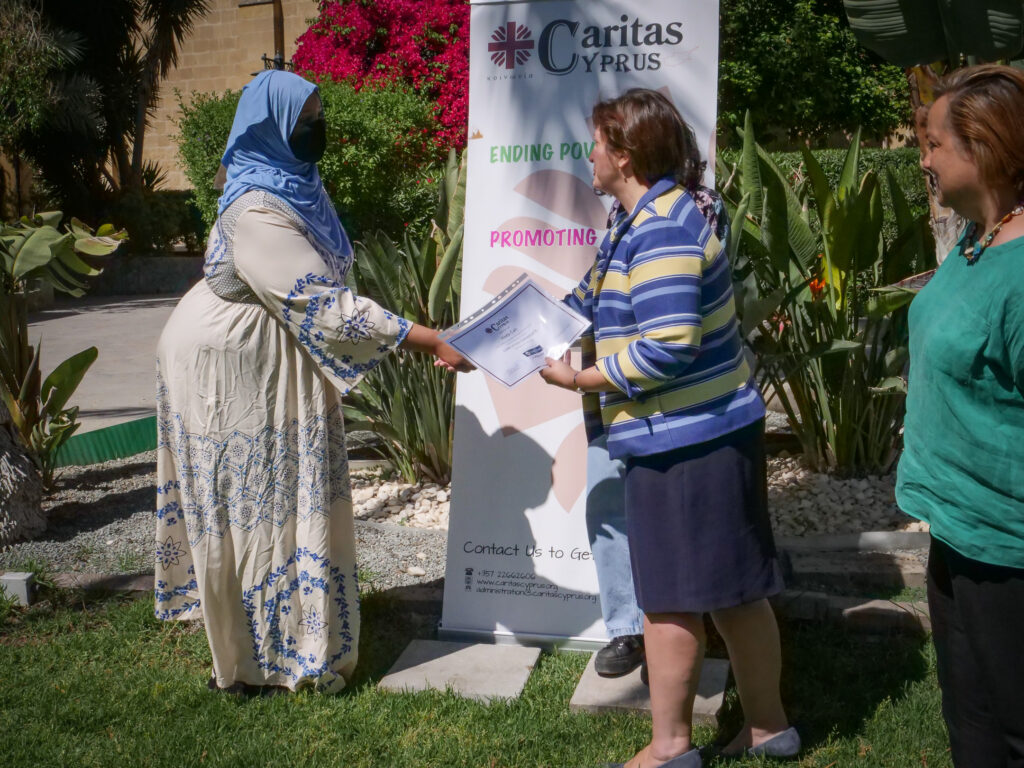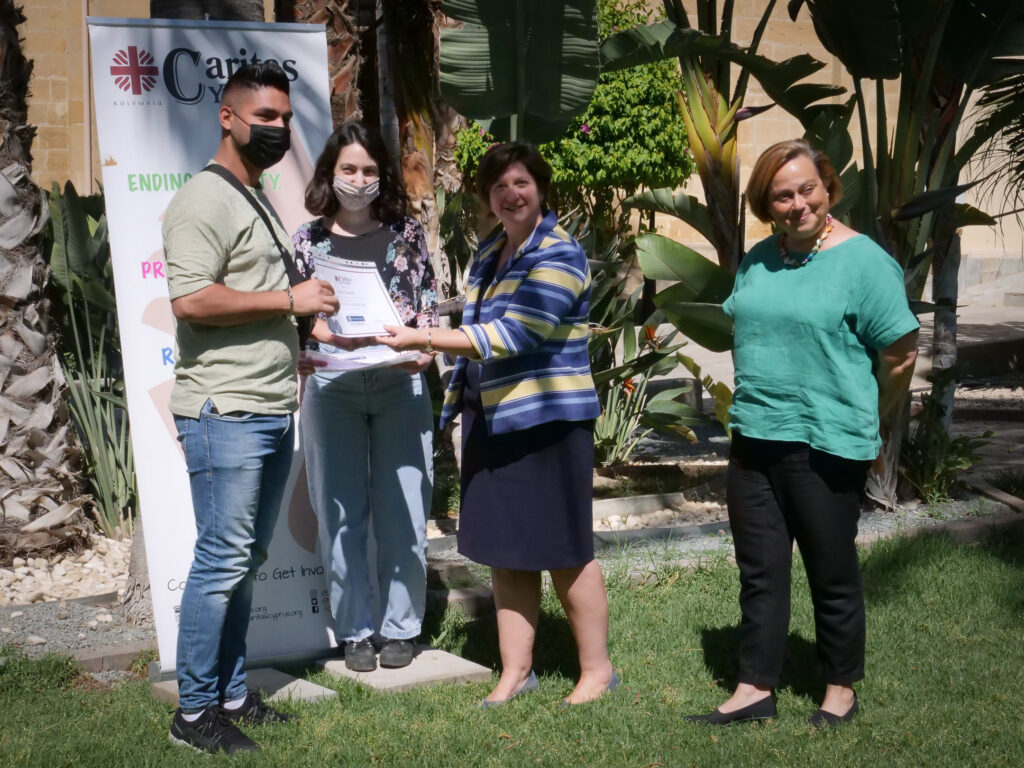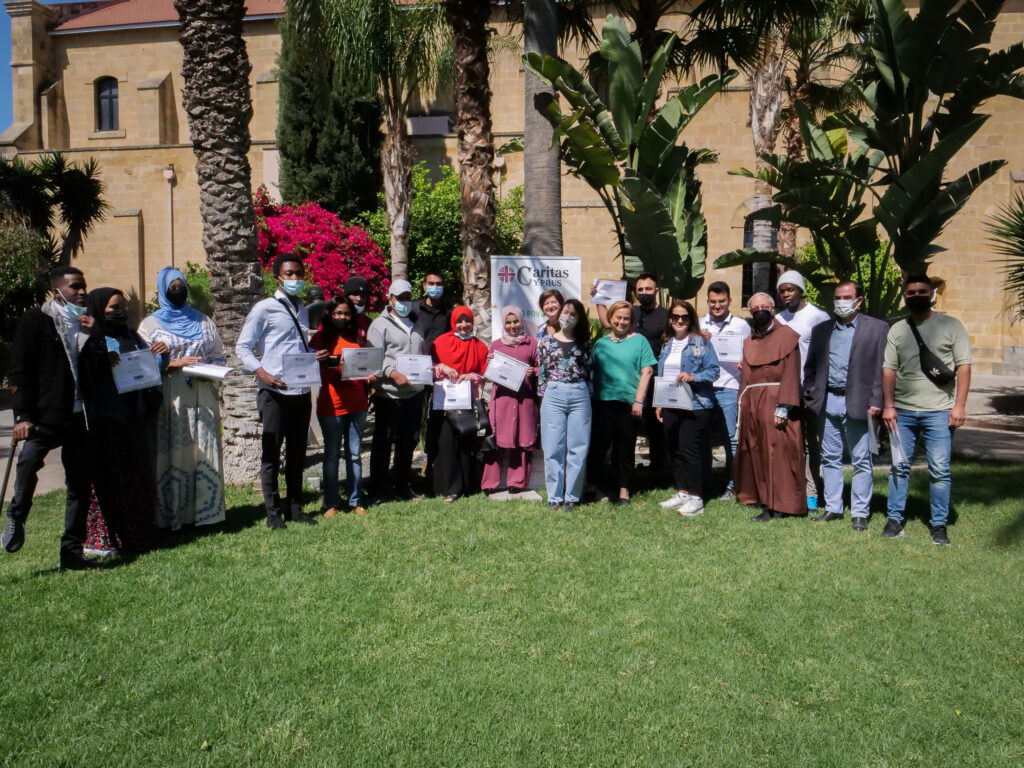With a small grant from the U.S. Embassy’s Julia Taft Refugee Fund, Caritas Cyprus developed an eight-week Greek course tailor-made for the needs of newcomers to the island. After testing the curriculum with eight classes of students, it has been refined and uploaded for use by others. The curriculum is accompanied by a collection of materials, sample pronunciation videos (Greek and Cypriot, for comparison) and other Greek language learning resources. They can be used by experienced teachers working with newcomers to Cyprus for the first time, by Greek speakers who want to volunteer to help newcomers adapt to life in Cyprus, or by students who are interested in learning without the benefit of an instructor.
Links to the curriculum details, other resources and references are listed below. The program description and an explanation of the process used to develop and refine the course follow.
Program Description
The course is aligned with the Cerf Pre-A1 level. According to the Common European Framework of Reference for Languages, Pre-A1 is considered “a milestone halfway towards Level A1, a band of proficiency at which the learner has not yet acquired a generative capacity, but relies upon a repertoire of words and formulaic expressions”. The course content is adapted to the learners needs and focuses on the skills required to communicate effectively in Greek by using a core vocabulary of high frequency words and simple grammatic forms.
Learning Goals
- Create meaningful communication by using a basic vocabulary and simple grammatical forms
- Recognize and use every-day phrases and sentences with simple form that focus on meeting specific needs to prepare the learners to engage in personal and workplace life
- Be able to access with more ease essential services, or join the labour force, communicate with landlords, shopkeepers, transportations, employers, doctors, to navigate asylum processes, fill out basic forms, keep informed and socialize
- Connect the Greek language with the Cypriot dialect forms and the meanings that they express
- Recognize cultural practices and perspective
Curriculum Implementation
The educational curriculum was created based on the above learning goals, as a tool for organizing learning and also as a support tool for individual learning. It promotes the gradual learning of the language, together with the communication framework set by each thematic unit. The curriculum material includes:
- 16 theme-related lessons, each containing visual representations and tasks to develop students’ reading, listening, speaking and writing skills as well as build on their vocabulary
- 16 group activities, one at the end of each lesson, to activate learning
- Video material for each one of the 11 topics – 11 short dialogues performed by the participants both in Greek language and Cypriot dialect
Themes Explored
- Alphabet and introductions
- Greetings and socializing in a formal or informal context
- Verbs and personal information
- Time and days
- Directions and transportation
- Food, groceries, clothes and communication with shopkeepers
- Occupations, labor force – interviews
- Body parts, healthcare and communication with the people working in the sector
- Accommodation and communication with landlords
- Services and communication with the people working in the sector
- Cyprus dialect, culture and everyday life
Learning Approach and Strategies
- Active learning
Active learning is a student-centered approach to learning that focuses on students’ active involvement in the learning process.
The participants were actively involved in the learning process through activities like: Reading, class discussions, pairs, cooperative learning, games, Jigsaw. These learning strategies allows the participants to be active within the classroom and associating with each other as learners to develop useful vocabulary tackling a range of subject areas, while at the same time, keep their interest, focus and motivation.
- Experiential Learning
Experiential learning provides students engagement into direct experiences closed to real-world problems and situations. It motivates students to reflect on their existing knowledge and transfer their prior learning experience in new context.
The learners were engaged in activities that provide experiential learning opportunities, and encourage reflection: simulations, focus group discussions, games, role playing. This learning strategies were used in order to connect the learning with real life experiences and enable them to activate, apply and reflect on their knowledge and the skills they are developing through the lessons on real life scenarios and discussions. At the same time, these techniques require students to fully use their vocabulary, grammar, speaking skills and communication strategies.
